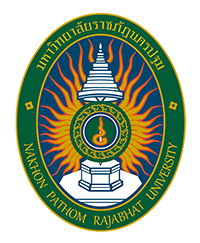 การประชุมวิชาการระดับชาติ ครั้งที่ 16
|
| Title | Intercultural Communication Strategies of Chinese Students Studying in Thailand: A Case Study of Nakhon Pathom Rajabhat University |
|---|---|
| Other Titles: | กลยุทธ์ในการสื่อสารระหว่างวัฒนธรรมของนักศึกษาชาวจีนที่เรียนในประเทศไทย: กรณีศึกษามหาวิทยาลัยราชภัฏนครปฐม |
| Authors EN |
|
| Authors TH |
|
| Keywords | Intercultural communication strategy, Chinese students,Cultural adjustment |
| Issue Date | 13-Aug-2024 |
| Publisher | The 16th NPRU National Academic Conference Nakhon Pathom Rajabhat University |
| Abstract | The purpose of this study is to investigate the intercultural communication strategies of Chinese students studying in Thailand. The participants were 42 Chinese students who have studied at Nakhon Pathom Rajabhat University. Research method applies action research (Burns, 1999) and case study (Yin, 2003). A quantitative data were collected from tests analyzed by percentage and mean. Grounded theory’s color coding (Strauss & Cobin, 1990) will be utilized in analyzing the qualitative data from a questionnaire, an interview, and classroom observation analyzed by descriptive analysis. Findings revealed that the students’ intercultural communication competence affected the students’ daily life and their study. Factors influencing the daily life of Chinese students were languages, cultural differences, and individual differences. The strategy Chinese students used in communication with Thai people was non-verbal language together with Thai and English. The students mainly used Thai for communication, followed by translating applications. There were two approaches to cultural adjustment of Chinese students. First, students felt excited about new things when arriving Thailand. Then they encountered culture shock and adjusted themselves to Thai culture. Second, students first faced cultural shock, then adjusted to live in a new environment. Regarding suggestions about activities promoting intercultural communication, it was found that arranging Thai buddies and joining cultural activities were beneficial to Chinese students both in their living and studying culture and languages. The activities contributing to cultural adjustment of Chinese students included Thai language training, English language training, providing Thai advisors, and arranging Thai buddies.
|
| ISBN | 978-974-7063-46-2 |
| URI | https://rdi.npru.ac.th/conference16 |